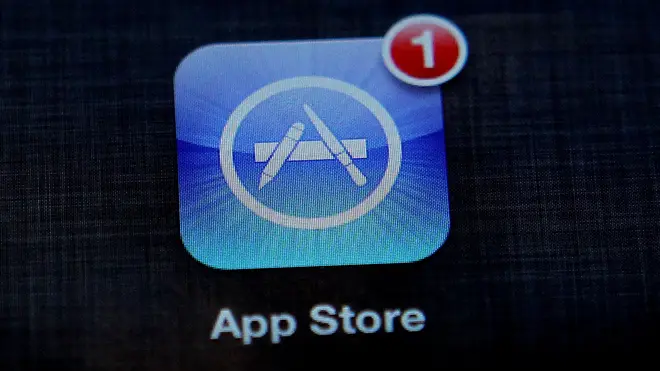
Ali Miraj 7pm - 10pm
1 March 2024, 12:14

The tech giant has published new details on how it is changing app distribution in the EU to comply with new competition laws.
Apple has warned that complying with new EU competition laws will make the iPhone less secure than it currently is, as the tech giant published new details on how its new approach will work.
The EU’s Digital Markets Act (DMA) is set to come into effect shortly, and requires tech giants to give consumers more choice.
As a result, Apple will be required to allow users to switch alternative app stores and download apps outside of Apple’s own App Store for the first time, as well as allow alternative payment methods.
The iPhone maker has published a new whitepaper, laying out how it will introduce new features to protect users from cyber attacks, malware and other risks under this new system, but the company has said it cannot eliminate the risks entirely.
Until now, only apps approved by Apple to appear in its App Store have been accessible for download on the iPhone, and purchases made in the App Store must be done through Apple’s own payment system – a so-called “walled garden” which Apple argues allows it to keep users and their data completely secure.
In its new report, Apple warns that because it is being required to change its “uniquely successful approach” used to “protect users’ security and privacy”, it will “not be able to protect users in the same way”.
“To keep offering users the most secure, most privacy-protecting, and safest platform — in line with what users expect from Apple — we’ve designed and implemented new safeguards that will help to protect and inform them,” the whitepaper says.
“While the changes the DMA requires will inevitably cause a gap between the protections that Apple users outside of the EU can rely on and the protections available to users in the EU moving forward, we are working tirelessly to make sure iPhone remains the safest of any phones available in the EU by reducing the risks introduced by these necessary changes—even though we cannot entirely eliminate such risks.”
Under its new system, Apple says it will introduce a new baseline review programme for all apps, regardless of whether they will be distributed via the App Store or an alternative app marketplace.
Apple says it will electronically sign each app that is distributed in the EU once it has been checked and cleared for “known malware and security threats, generally functions as advertised, and doesn’t expose users to egregious fraud”.
However, the company confirmed that these new checks will not cover app content.
And it warned this could see content it does not allow inside the App Store appear within its iPhone operating system in the EU.
“This means Apple won’t be able to prevent apps with content that Apple wouldn’t allow on the App Store — like apps that distribute pornography, apps that encourage consumption of tobacco or vape products, illegal drugs, or excessive amounts of alcohol, or apps that contain pirated content (or that otherwise steal ideas or intellectual property from other developers) — from becoming available on alternative app marketplaces,” the whitepaper said.
But the US tech giant did pledge to “ongoing monitoring” of apps to detect and remove any malicious applications it uncovers.
Under the new system in the EU, Apple will also begin showing users pop-up, on-screen alerts when they are about to leave the App Store to download an app or make a payment outside of the store and Apple’s payment system.
The company said this would allow users to make “educated choices about the apps they download”.
Apple said it had been contacted by consumers, governments and government agencies both inside and outside the EU asking for assurance and clarity on the safety of the platform under the new rules.
A number of other tech firms have previously accused Apple of maintaining a monopoly of the app market by not allowing rival app marketplaces or payment methods on the App Store.
The European Commission argues that the DMA offers more and better services for consumers to choose from, and increases opportunities to switch providers if they so wish, which will ultimately lead to fairer prices and boost innovation in the sector.